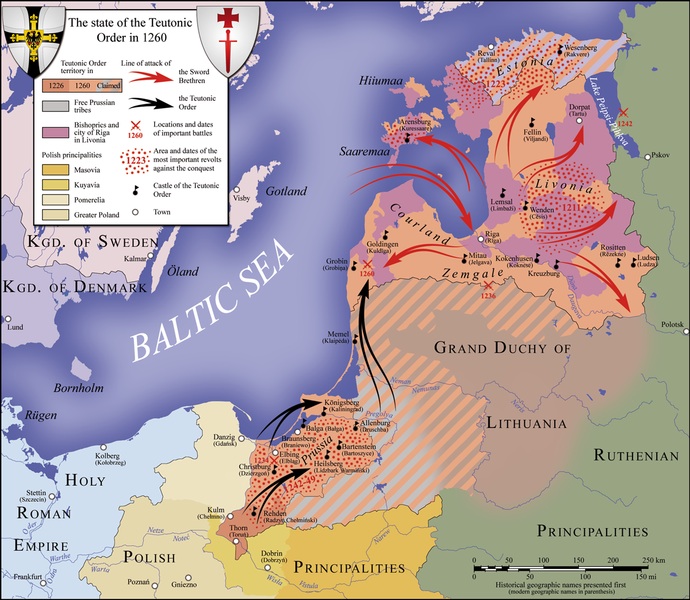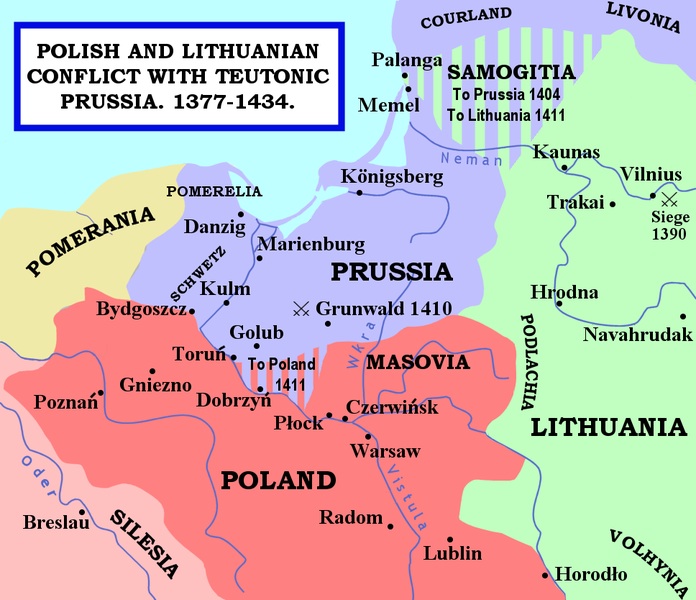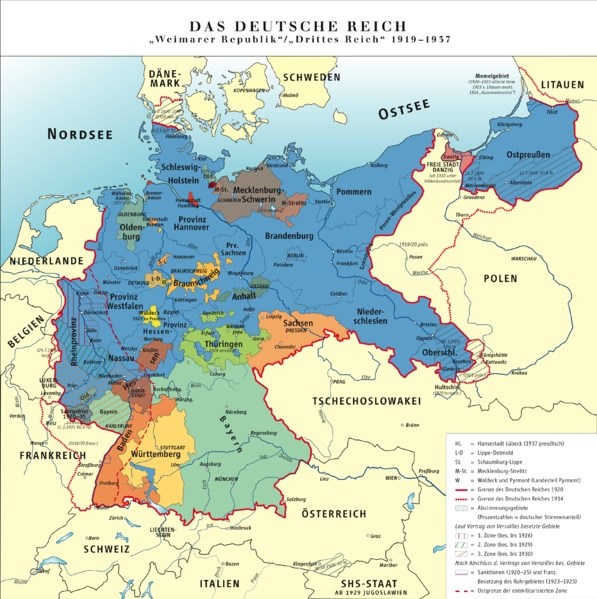State of the Teutonic Order
|
With the Golden Bull of Rimini, Emperor Frederick II bestowed on the Teutonic Order a special imperial
privilege for the conquest and possession of Prussia with nominal papal sovereignty.
The Order ruled Prussia under charters issued by the Pope and the Holy Roman Emperor as a sovereign monastic state, comparable to the arrangement of the Knights Hospitallers in Rhodes and later in Malta. The conquest of Prussia was accomplished with much bloodshed over more than 50 years, during which native Prussians who remained unbaptised were subjugated, killed, or exiled. Fighting between the Knights and the Prussians was ferocious; chronicles of the Order state the Prussians would "roast captured brethren alive in their armour, like chestnuts, before the shrine of a local god". The native nobility who submitted to the crusaders had many of their privileges affirmed in the Treaty of Christburg. After the Prussian uprisings of 1260–83, however, much of the Prussian nobility emigrated or were resettled, and many free Prussians lost their rights. The Prussian nobles who remained were more closely allied with the German landowners and gradually assimilated. Peasants in frontier regions, such as Samland, had more privileges than those in more populated lands, such as Pomesania. The crusading knights often accepted baptism as a form of submission by the natives. Christianity along western lines slowly spread through Prussian culture. Bishops were reluctant to have Prussian religious practices integrated into the new faith, while the ruling knights found it easier to govern the natives when they were semi-pagan and lawless. After 50 years of warfare and brutal conquest the end result meant that most of the Prussian natives were either killed or deported. |
|
1226: Konrad I, Duke of Masovia in north-eastern Poland, appealed to the
Knights to defend his borders and subdue the pagan Baltic Prussians.
1235: the Teutonic Knights assimilated the smaller Order of Dobrzyń, which had been established earlier by Christian, the first Bishop of Prussia. 1237: The Livonian Brothers of the Sword controlling Livonia were incorporated into the Teutonic Order as its autonomous branch Livonian Order. 
1346: The Duchy of Estonia was sold by the King of Denmark to the Teutonic Order. 1410: Defeat in the Battle of Grunwald (Tennenberg). The Teutonic Order fell into decline. 
1422–1435: The Livonian branch joined the Livonian Confederation established. 1466: the Peace of Thorn. The Teutonic lands in Prussia were split in two. The western part of Teutonic Prussia was converted into Royal Prussia which became a more integral part of Poland. 1525: The monastic state in the east was secularized during the Protestant Reformation when it was replaced by the Duchy of Prussia, a Polish fief governed by the House of Hohenzollern. 
|